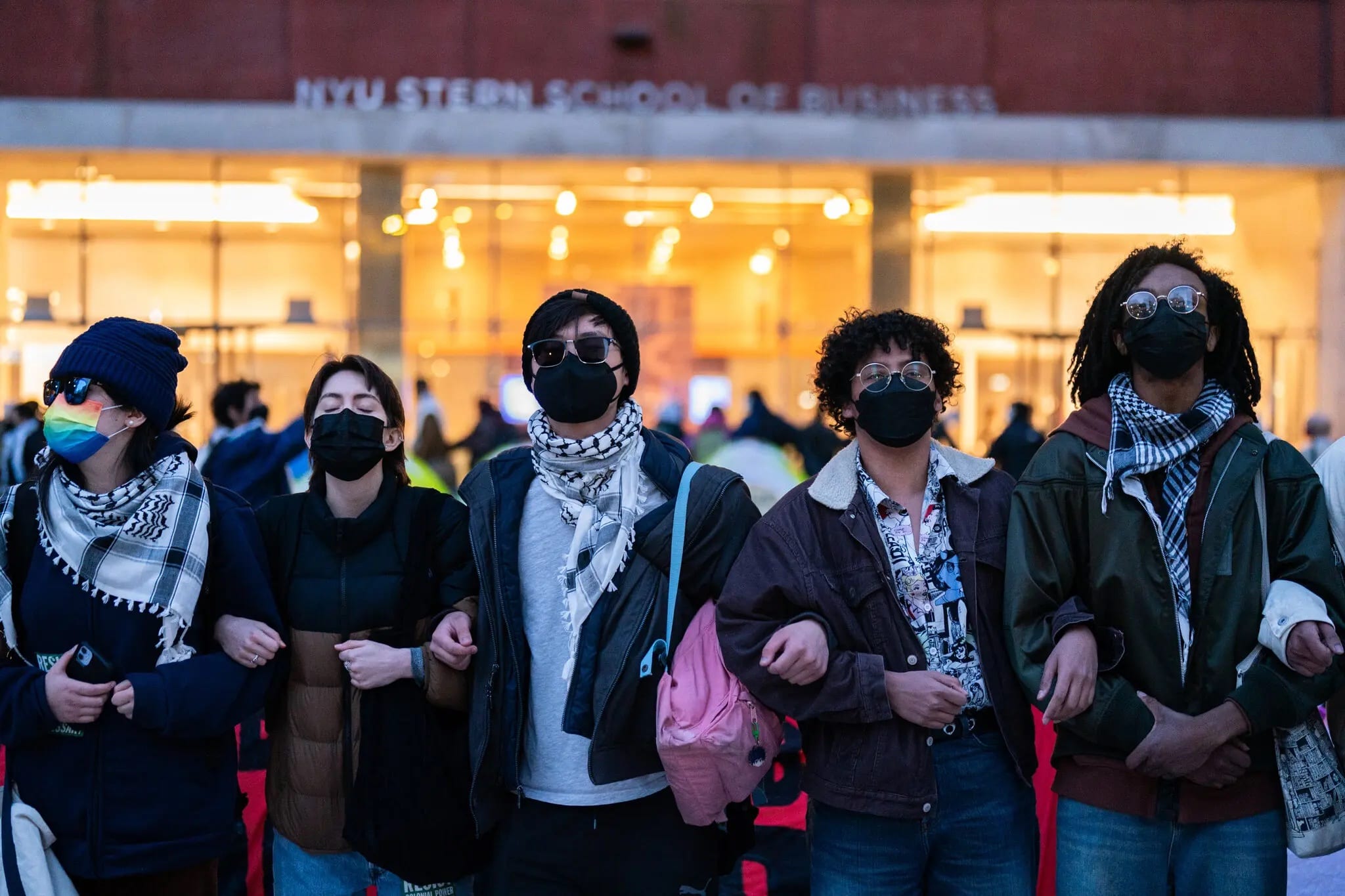
Should the U.S. Sanction China if it Doesn’t Respect Democracy & Human Rights in Hong Kong? (S. 1838)
Do you support or oppose this bill?
What is S. 1838?
(Updated April 4, 2020)
This bill — the Hong Kong Human Rights and Democracy Act — would reaffirm the U.S. commitment to democracy, human rights, and autonomy of Hong Kong and aim to prevent the People’s Republic of China from undermining Hong Kong’s rights. It would require the administration to develop a strategy for protecting U.S. citizens and businesses from risks posed by Hong Kong allowing extradition to China, which would include revisions to the U.S.-Hong Kong extradition agreement or a State Dept. travel advisory.
The administration would be required to identify persons responsible for the abduction of Hong Kong booksellers and journalists and those complicit in suppressing basic freedoms, in addition to people complicit in the rendition of individuals to mainland China for trial or detention. Persons involved in such repression would be barred from entering the U.S. and all of their U.S.-based assets would be frozen.
The Secretary of State would be required to make an annual certification of Hong Kong’s autonomy (including free and open elections) to justify special export & trade treatment current federal law grants Hong Kong. The Secretary of Commerce would be required to issue an annual report assessing whether Hong Kong is adequately enforcing both U.S. export regulations related to sensitive dual-use items and sanctions imposed by the U.S. and the United Nations, particularly those on Iran and North Korea.
Additionally, this bill would:
- Clarify that visa applicants shouldn’t be denied visas based on the applicant’s arrest, detention, or other adverse government action taken as a result of their participation in the non-violent, pro-democracy advocacy, human rights, or the rule of law in Hong Kong.
- Express the sense of Congress that the federal government should consider export controls on crowd control and surveillance equipment to Hong Kong (such as those used in China’s social credit system).
- Express that Congress condemns the Chinese government’s use of state-controlled media to harass & intimidate pro democracy protesters and spread false information about its perceived enemies in Hong Kong. It would also call on the Secretary of State to consider denying work or travel visas to officials and journalists from such state-controlled media organizations.
- Coordinate with the United Kingdom, Australia, Canada, Japan, and South Korea regarding U.S. policy.
Argument in favor
Hong Kong needs to remain a free, democratic, and autonomous entity but is facing increasing interference from the communist Chinese government. This bipartisan bill would show that the U.S. stands with Hong Kong by sanctioning those violating human rights and taking steps to protect American citizens and businesses in the event that extradition from Hong Kong to China is allowed.
Argument opposed
If China wants to undermine Hong Kong’s autonomy and status as a democratic government it’s going to do so whether or not the U.S. threatens sanctions in response. It may be a bipartisan effort, but this bill ultimately won’t do much to protect human rights or democracy in Hong Kong.
Impact
Hong Kong and its people; China; and the U.S.
Cost of S. 1838
A CBO cost estimate is unavailable.
Additional Info
In-Depth: Sen. Marco Rubio (R-FL) introduced this bill to protect Hong Kong’s autonomy, democracy, and human rights from China’s repression:
“As the people of Hong Kong stand up in defense of their long-cherished autonomy and freedoms, I want them to know that the United States and the free world support them. Beijing continues to erode the autonomy that it had promised to Hong Kong in a legally-binding 1984 international treaty with Britain and under Hong Kong’s Basic Law. I urge Congress to pass this bill and send it to the President for enactment so the United States and partner nations can hold China fully accountable for its ongoing efforts to undermine Hong Kong’s freedoms and autonomy.”
Lead Democratic cosponsor Sen. Ben Cardin (D-MD) added:
“For months now the world has witnessed the bravery of tens of thousands of pro-democracy protestors in Hong Kong whose quest for autonomy and democracy has been beaten back with brutal force. Our bill sends a strong message that Congress and the people of the United States stand in solidarity with them. The United States cannot stand idly by as China tramples on the basic human and civil rights of the people of Hong Kong and spreads disinformation in an attempt to discredit and silence their voices. Our bill demonstrates the Congress’ work across party lines to ensure robust affirmation of Hong Kong’s autonomy and to make clear that there must be consequences those who seek to further undermine it.”
This legislation has the support of 42 bipartisan cosponsors in the Senate, including 21 Democrats, 20 Republicans, and one Independent — Sen. Angus King (I-ME).
A similar version of this bill, which was introduced by Rep. Chris Smith (R-NJ) and has the support of 47 bipartisan cosponsors, passed the House on a voice vote in June 2019. The House also passed bills to recognize U.S. support of the Hong Kong protesters’ key demands and block exports of crowd control items (like tear gas) for use by the Hong Kong Police.
The Chinese government hit back at the passage of those bills through state-owned media, calling them “arrogant and dangerous” activity that is “inescapably related to the overt or covert support from the U.S” to “anti-China troublemakers in Hong Kong” and demonstrative of America’s “sinister intentions to undermine Hong Kong’s prosperity and stability and contain China’s development.”
Of Note: Hong Kong was a colony of the United Kingdom until it became a special administrative region of the People’s Republic of China on June 30, 1997. The Chinese and British governments agreed in their Joint Declaration on the Question of Hong Kong that Hong Kong would continue to practice a democratic, capitalist system of government and law for at least 50 years after being reunified with socialist China. It has never been publicly stated what will happen to Hong Kong’s governance in 2047 (Macau, a similarly-governed former Portuguese colony, will be in the same situation in in 2049).
China's perceived interference in Hong Kong's affairs have raised questions over whether the communist regime was abiding by the terms of the "one country, two systems" policy. A wave of protests swept Hong Kong recently after its pro-mainland chief executive Carrie Lam proposed a bill to allow extradition of people from Hong Kong to face trial in mainland China. After Lam announced she would postpone consideration of the bill, two million of Hong Kong’s seven million residents took to the streets, with many demanding the bill’s formal withdrawal and Lam’s resignation. Lam said the bill wouldn’t be reintroduced during her time in office if public outcry persists and initially stopped short of withdrawing the bill. Protesters’ demands broadened into five key demands:
- Complete withdrawal of the extradition bill that originally sparked the protests;
- Universal suffrage in local Hong Kong elections;
- An investigation into the Hong Kong Police’s excessive use of force against demonstrators;
- Release of those who have been arrested during the protests; and
- Hong Kong Chief Executive Carrie Lam’s resignation.
Eventually, Lam relented and formally withdrew the bill, but since then clashes between protesters and the Hong Kong Police have become increasingly violent, heightening already present concerns that the Chinese military (the People’s Liberation Army (PLA)) will move in from the mainland to violently repress the protests like it did in Tiananmen Square.
Media:
-
Sponsoring Sen. Marco Rubio (R-FL) Press Release
-
South China Morning Post
-
The Washington Post
-
Countable
Summary by Eric Revell
(Photo Credit: Studio Incendo via Wikimedia / Creative Commons)The Latest
-
 IT: Battles between students and police intensify, and... 💻 Should we regulate AI access to our private data?Welcome to Thursday, May 2nd, listeners... The battle between protesters and police intensifies on college campuses across the read more...
IT: Battles between students and police intensify, and... 💻 Should we regulate AI access to our private data?Welcome to Thursday, May 2nd, listeners... The battle between protesters and police intensifies on college campuses across the read more... -
 Should U.S. Implement Laws Protecting Private Data from AI Access?Artificial intelligence is rapidly integrating into our everyday lives, transforming the way we work, live, and interact with read more... Artificial Intelligence
Should U.S. Implement Laws Protecting Private Data from AI Access?Artificial intelligence is rapidly integrating into our everyday lives, transforming the way we work, live, and interact with read more... Artificial Intelligence -
 Protests Grow Nationwide as Students Demand Divestment From IsraelUpdated May 1, 2024, 11:00 a.m. EST The battle between protesters and police has intensified on college campuses across the read more... Advocacy
Protests Grow Nationwide as Students Demand Divestment From IsraelUpdated May 1, 2024, 11:00 a.m. EST The battle between protesters and police has intensified on college campuses across the read more... Advocacy -
 IT: Rumors spread about ICC charging Israel with war crimes, and... Should states disqualify Trump?Welcome to Tuesday, April 30th, friends... Rumors spread that the International Criminal Court could issue arrest warrants for read more...
IT: Rumors spread about ICC charging Israel with war crimes, and... Should states disqualify Trump?Welcome to Tuesday, April 30th, friends... Rumors spread that the International Criminal Court could issue arrest warrants for read more...
 Climate & Consumption
Climate & Consumption
 Health & Hunger
Health & Hunger
 Politics & Policy
Politics & Policy
 Safety & Security
Safety & Security
